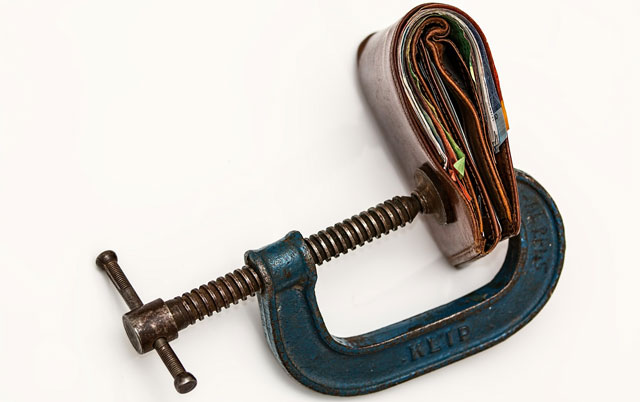
South Africa’s inflation fell below the upper end of the central bank’s target band in August for the first time this year, leaving room for policy makers to continue to pause their tightening cycle.
The rate fell to 5,9% from 6% a month earlier, Statistics South Africa said in a report released on Wednesday in Pretoria. That was in line with the median of 24 economist estimates compiled by Bloomberg. Prices fell 0,1% in the month.
The Reserve Bank has raised its benchmark repurchase rate by 200 basis points to 7% since January 2014 in a bid to limit price growth to within its 3-6% target band. It left borrowing costs unchanged at its past two meetings to help support an economy forecast to expand at the slowest pace this year since a 2009 recession. Mining output declined in July and growth in factory output and retail sales slumped, the statistics office said this month.
“This number just gives them that room to temporarily leave rates unchanged, especially when you see what is happening with growth,” Busisiwe Radebe, an economist at Nedbank Group in Johannesburg, said by phone on Wednesday. “The Reserve Bank, for now, will take a wait-and-see approach to see what will happen with the rand.”
The central bank, which has said the currency remains a key risk for price growth, will announce its interest rate decision on Thursday. All 27 economists in a Bloomberg survey forecast the benchmark rate will remain unchanged.
The rand gained 1,4% to R13,72 at 10.55am in Johannesburg on Wednesday, taking its appreciation this year to 12,7%. Yields on rand-denominated government bonds due December 2026 fell three basis points to 8,57%.
Inflation expectations, as measured by the five-year breakeven rate, are at the lowest since 23 August, the day of the first reports that the police want to question finance minister Pravin Gordhan in relation to a special investigative unit established during his tenure at the revenue service. The rand slumped on the news. Deputy governor Daniel Mminele said in a speech last month that inflation is anticipated to remain above target until the middle of 2017.
“The Reserve Bank will probably present a CPI outlook that sees inflation back within the 3-6% band sooner than what they were expecting,” Gina Schoeman, an economist at Citigroup in Johannesburg, said by phone on Wednesday. “We’ve had a lot of political uncertainty more recently again, which caused somewhat of a flare-up in the currency, but that seems to be blowing over to a degree. The currency is starting to pull back slightly and that’s going to make a difference to their CPI outlook.”
Core inflation, which excludes food, non-alcoholic beverages, energy and gasoline, was unchanged at 5,7%, in line with the median estimate of 12 economists in a Bloomberg survey.
The statistics office will review and update the weights in the basket for consumer inflation, it said in an e-mailed statement on Wednesday. The first inflation data calculated from the new basket will be for January 2017. — (c) 2016 Bloomberg LP
- Reported with assistance from Simbarashe Gumbo




